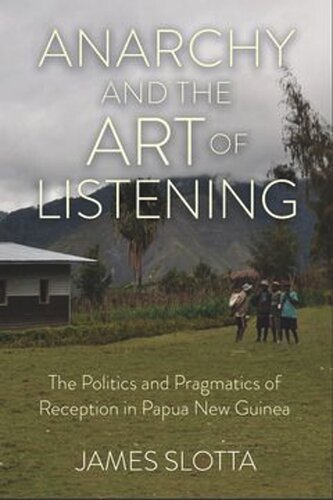

Most ebook files are in PDF format, so you can easily read them using various software such as Foxit Reader or directly on the Google Chrome browser.
Some ebook files are released by publishers in other formats such as .awz, .mobi, .epub, .fb2, etc. You may need to install specific software to read these formats on mobile/PC, such as Calibre.
Please read the tutorial at this link: https://ebookbell.com/faq
We offer FREE conversion to the popular formats you request; however, this may take some time. Therefore, right after payment, please email us, and we will try to provide the service as quickly as possible.
For some exceptional file formats or broken links (if any), please refrain from opening any disputes. Instead, email us first, and we will try to assist within a maximum of 6 hours.
EbookBell Team

4.7
56 reviewsAnarchy and the Art of Listening is an ethnography of politics as it is practiced on the other side of the spoken word, in the act of listening. James Slotta explores how people in the Yopno Valley of Papua New Guinea cultivate their listening to exercise power, shape their futures, and sustain their communities in the face of ambitious leaders and powerful outside institutions.
As in many parts of the global south, missionaries, NGO workers, educators, mining companies, politicians, development experts, and others have sought to transform life in and around the Yopno Valley. But as this book makes clear, people there have not been a passive and pliable audience for these efforts. They have brought their skills as "anarchic listeners" to these encounters, advancing political agendas of their own.
To understand political life in the Yopno Valley, we need to look beyond what people say to the practices that lie on the other side of the word. This, Slotta suggests, is also true well beyond the bounds of the Yopno Valley.